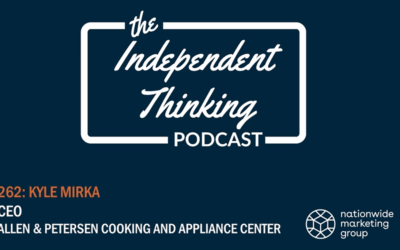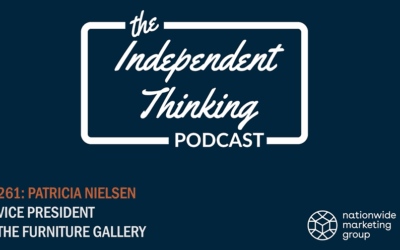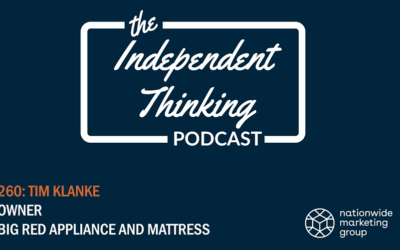There’s nothing like celebrating major milestones with our Members. The team at Silica For Your Home in Fond Du Lac, Wisconsin, hit a major one this year with their 100th anniversary. We took the opportunity to talk with third- and fourth-generation owners Tom and Josh Schneider and get their take on what Silica has gotten right over the last century.
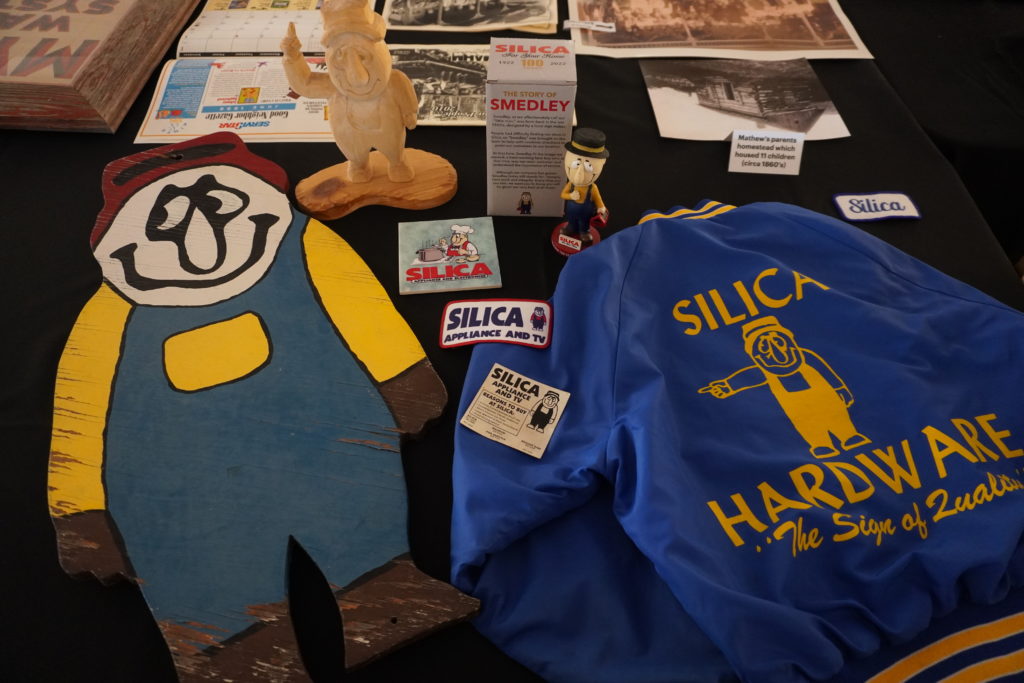
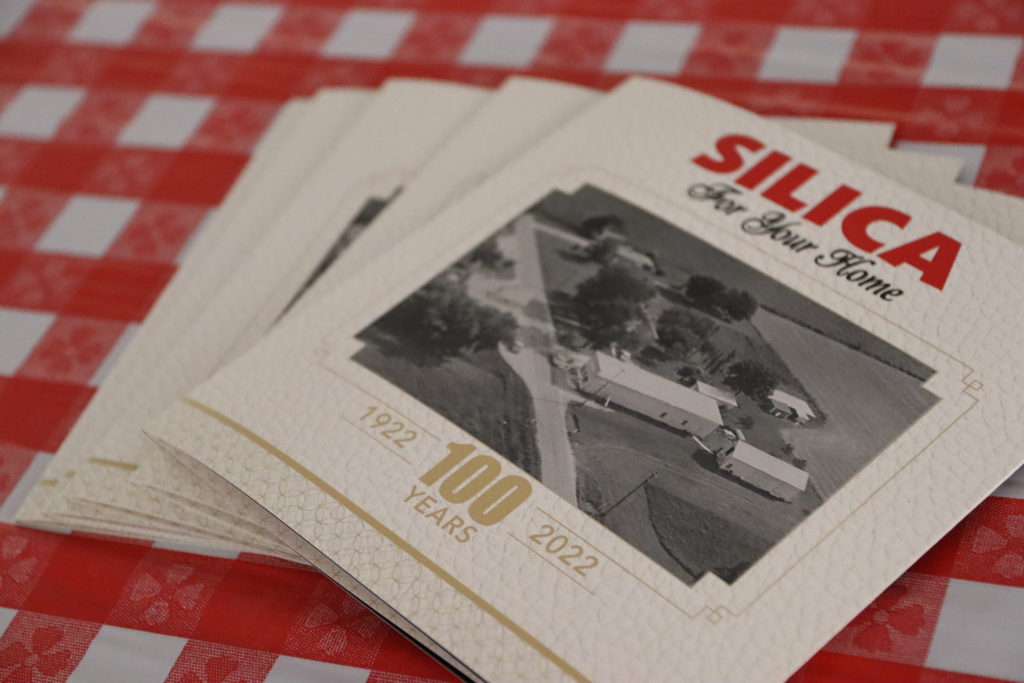
Rob Stott: We are back on the Independent Thinking Podcast and really exciting opportunity today. We love chatting with members. We love celebrating with members too, and we get to do that in a really special way today with the folks at Silica For Your Home up there in Fond du Lac, Wisconsin. Tom, I love saying the name. It’s just fun. It rolls off the tongue, Tom and Josh.
Tom Schneider: It actually stands for foot of the lake.
Rob Stott: Okay. So yeah, I learned something today. Well, there’s some French influence in that community, but I appreciate you guys both having the time and jumping on to talk about really awesome milestone for your company, a hundred years, 1922 to 2022. Celebrating that century marketing business. So first of all, just appreciate you guys hopping on and how you doing?
Tom Schneider: Great.
Josh Schneider: Great. Thanks for having us.
Rob Stott: Yeah, absolutely. So I want to start, a hundred years, a lot of history to talk about. So I mean, I kind of want to set the stage for you guys to run through it. So Tom, you want to start, you guys share the stage here, but walk us through the history of the business and kind of what Silica was back in 1922, what it is today and sort of everything in between.
Tom Schneider: So, kind of a really cool start. Our business started in a small town of Silica at that time was about 30 people. My grandfather owned three cheese factories, and he would work with the local farmers and he started selling pitch forks and flour out of the cheese factory. Decided that there was a little bit more of a demand, so he opened up a hardware store directly across. And it was really a very rural area. And he mainly worked with the farm community. He would sell things like dynamite, everything a hardware store would sell. So he ran the business. Eventually, my father took over for him coming back from World War II. So you can imagine the depression was very difficult. They had a milk strike out in Wisconsin. The farmers were hit really hard. And then we had a drought in the 1930s.
Rob Stott: Wow.
Tom Schneider: So, we could talk about all the things that we go through difficult times, but it was there too. And then my father took over in actually 1951 and he started selling appliances at that time, before then it was mainly just hardware, housewares, things like that. So he started selling appliances. He brought his brother in the business and then he had eight children and we all got involved in the business, but it evolved into that appliances became our number one product. So fast forward, we have now three locations. We had to move to Fond du Lac because we were very rural out there. People would have a difficult time finding us. So we were very rural out there. So we moved into Fond du Lac. We opened up the stores in Beaver Dam and Watertown, Wisconsin also. And now no more hardware. We focus appliances, electronics, grills that all came from the hardware part of it. And then now furniture too.
Rob Stott: So, I was going to add, no more dynamite in the stores?
Tom Schneider: No more dynamite. And actually, it was needed at that time because they didn’t have heavy equipment to get stones out of their fields.
Rob Stott: Yeah. Wow. That’s crazy how times the cha, but interesting too, you mentioned the challenges at the time, it just goes to show to your point that there’s always something going on, some challenge that you have to overcome and it’s just different ways of thinking about it. Whether, you’re talking about milk strikes or pandemics. I mean, there’s something for the times?
Tom Schneider: Exactly.
Rob Stott: Cool. So, I mean, to see sort of where it came from and what you guys are doing. What’s it mean to you to see that century mark, the 100 years in business? You hear that and you kind of think about all that history. To each of you, what’s it mean?
Tom Schneider: Well, for me, it is so much pride, because I have 50 years into it and I started at the age of 9 and it was so much work. I mean, it was hard work. We were putting 60 hours in a week when we were in high school during the summers and getting home and helping at the store, it just feels like that hard work paid off. There’s so much pride, all that work paid off and people enjoyed it. So for me, it was all that hard work, everything that we put into it, got us to a 100 years, which is really cool.
Rob Stott: How about for you, Josh?
Josh Schneider: Well, and obviously, I echo a lot of Tom’s thoughts on that too, but I’m extremely humbled to be part of a fourth generation as part of this. I didn’t have the same experiences that, me stepping in when I did, we were much more established, our roots and everything were, were really there by the time I had gotten involved in everything. And I got a chance to really learn from the best I feel and keep evolving from there. And now, I mean, it’s really, for me, looking at that century mark, how do I get it to keep going from here. So looking backwards is incredible. It’s very humbling, but for me, I guess I’m much more forward focused now at this point.
Rob Stott: Oh, that’s awesome to hear. One of the things I love about getting to talk to independent and family run businesses, is the perspective of getting into the business. What was that path like for you and being able to do it with two different generations, it’ll be kind of cool to juxtapose you guys against your experiences getting started and whatnot. So Tom, if you want to start, what was your path a day and was it predetermined?
Tom Schneider: Yeah, it was. In some ways unfortunate, but very fortunate. It was a path of, so I had seven brothers or six brothers, one sister. So there were eight kids in our family, dad, when he took over the store, he had a path for us that we’re all going to work at the hardware store. We’re all going to do something. I was the youngest of eight. So that, was predetermined. And so, we got involved…
Rob Stott: Did you get the leftover jobs? Is that what it is? Like the sweeping of the store and warehouse?
Tom Schneider: Exactly what it was. Yep. And so that, part was predetermined because I actually started in the service truck at 9 years old.
Rob Stott: Wow.
Tom Schneider: And with my brother and by 11 years old, if we had two products in the house that needed repair, I was repairing one of them. So that, was there, what I didn’t know was going to happen was all of a sudden, as I got older, a desire to be involved in the business, to actually grow the business, to take over the business, which can be complicated in a family business, but it worked out really well. And the support I had from the family, they supported my decision that I wanted to take over and tell you what I had the unbelievable brothers who just wanted to be servants to the customers. That’s what they enjoyed. So it was a cool path. It really worked out well.
Rob Stott: Before we jump over to Josh, what sort of because that’s, I mean, you hear some very different stories, especially in a group of however, 5,000 members of nationwide and very different tales that you can get. But what sort of was the success? What do you think were the keys or thing or two that you could pick out? Like why was that successful for you? The way the family sort of worked things out and were comfortable with you sort of taking over the business?
Tom Schneider: Yeah, I think, because from a young age we were taught to be servants to customers. My dad was never afraid of that. That’s what made him such a good businessman, is he never was afraid of that. So we were taught that part of it. But as Josh said before the forward thinking, how do we grow? How do we look at different things that we can do? And how do we put that into words? Now, you’re getting larger than the family. So with dad, he had a business meeting every night at the dinner table.
Tom Schneider: So, the culture was set. So now we start hiring outside. And I think that one of the challenges I had and I embraced it was, how do we teach those folks? How do we teach that you’re part of this family, and this is our culture, and this is how you act. And so, I think that was the one thing that I will give myself credit for, is that I was able to communicate that to others and that helped us keep our culture, keep our personality, make sure that we stayed consistent with that part of it, even though we changed and had to be innovative and sold different products.
Rob Stott: No, that’s awesome to hear, I think insightful too. So pretty cool to be able to get that input. Josh, the upbringing, same question. Did you feel predetermined, predestined to be part of the business?
Josh Schneider: Mine, I don’t think was as predetermined as Tom’s was, but for me, so Joe, one of Tom’s older brothers, he managed our first satellite store in Waupun when we opened that up in 1986. So right around the age of 9, 10, one of the ways my dad’s putting in a lot of hours, I got a chance to see him was helping him out maybe during the summer weekends and stuff like that. I’d get in the store and he’d make me clean appliances, mop floors, assemble TV carts, just all those little things that you can do at that age. And I really enjoyed just all the different products, all the cool things that we had in the store. And I think I kind of fell in love with that aspect of it.
Josh Schneider: As I got a little bit older, I had a great relationship with all my uncles, and they needed some help on the delivery team. So they kind of asked, I was a freshman in high school and they needed some delivery guys. So they asked, “Hey, you interested?” And I gladly took that. I was actually getting paid then instead of working for my maybe soda or whatever my dad would give me. So that, was also beneficial. And really from there, I think is when I kind of, at some point made that decision that I really loved the dynamic of the family business. I enjoyed working with my uncles. I loved working with my dad and just everything. And then just the rest of the employees. It just felt like such a big family for me.
Josh Schneider: And even as I kind of went through college and everything like that, and just kind of kept growing and getting different opportunities to manage the delivery team, manage the inventory with the warehouse, getting into sales more and just kept growing from there. It just gave me opportunities. And I just really enjoyed that dynamic of just working really with not only our employees and then on the sales side with our customers and just building those relationships too, fell in love with it. And just kind of Tom trusted in me to be part of the organization long term and to where we’re at today.
Rob Stott: Oh, that’s cool to hear too. Again, so not too different. You know what I mean, different generations, but like just that being bit by that bug is there. And I wonder, can each of you think of a moment, is there one thing that you felt was the hook that really made you feel like this was more than just a job and you could turn it into the passion and career that it’s become?
Josh Schneider: No, for me, I would say it was really when I was getting kind of in between from deliveries into the sales aspect of it. When you’re all of a sudden you’re working directly and you feel like you’re actually affecting people’s lives with you’re selling them stuff that they love and you’re making their lives better by doing that. To me, I think that’s what really, really hooked me and got me into it. And then from there just, I got more interested in just crunchy numbers and getting involved in all the metrics of a business and especially when I got into more of the management, working with my team and just trying to grow them then as well. So I guess it’s an evolution. I can’t say necessarily one thing, but I’d say it was kind of that transition between delivery and sales for me.
Rob Stott: That’s awesome.
Tom Schneider: Yeah. I would say for me, as I mentioned earlier, it was more of dad had it set up that we’re going to be in the family business. So really, to be honest, didn’t really give us a vision of college. So none of my siblings went on to furthering education. And all of a sudden I got to the age of probably around 23, 24 when we had our shareholder meetings. And all of a sudden I started looking at financials, because I was thinking maybe this isn’t for me. And then the challenge of the business part of it, which that’s where I really jumped in, said, yeah, this is where I want to be forever.
Tom Schneider: I did everything prior to that. I was service delivery, sales, as Josh has talked about, but I think that was the hook. And it was a little later, than I think dad expected it to be. But all of a sudden there was a different challenge for me that was like, okay, this could be my career. And by the way, I know a lot about it, now I just have to learn a different division of it. And then the challenge of growing all of a sudden hit me. It’s like, okay, what can we do from here? How can we change all of the good things? And everything was in motion. Just don’t blow what’s here. Just modify it a better or grow.
Rob Stott: Gotcha. Well, looking at the business today, I mean, when you think about a customer coming into a Silica store, what is sort of that expectation that you hope to set that shopping experience. What are you going for and what do you want that customer to… What kind of experience do you want them to have while they’re walking through your store?
Tom Schneider: It’s not a transaction, it’s a friend. There’s so much laughter on our floors. When people walk in, we feel like, and that was part of being in an old hardware store in the middle of a small town. I think it’s a small town feel and we have built so many friends over the years. People walk in and it becomes contagious, because other people who may have never shopped at Silica will walk in and hear this laughter going on, hear this relationship going on and say, “I just want to be part of this. I want to feel part of that.” That’s what I think is kept us, that’s a feel of our floor. And when you walk out of here, you bought something, but you didn’t feel like you were sold something.
Rob Stott: It’s interesting, because I think that’s something that most business or any company, really, whether retailer or any industry, you kind of strive for. You want to have that sort of comradery amongst the staff and employees and you don’t want to feel like coworkers, you want to feel like friends. So I mean, that’s obviously years in the making of building a culture that supports that and allows you guys to do that. What are some, hard to kind of sum it up in a few words, but what do you thinks important for a retailer to try to build that kind of culture?
Josh Schneider: Be genuine. That’s the biggest thing, is when you’re engaging, whether it’s your customers, whether it’s your employees, you got to be true to yourself and really, for us, it’s been about family. It’s been about treating everybody with respect and care. And you just keep bringing that out. Once you sow those seeds and everybody buys in on it, it’s very easy, I think.
Rob Stott: Tom?
Tom Schneider: And I would agree. It’s the smile when they walk in, it’s the being genuine and then all the other tools you need as a salesperson to be helpful, to know the product and all that all is part of it. We’re not discounting that. We’re just saying our personality and how people feel is started with those things, smile, genuine, friendly, fun. And that’s the start of building a relationship with someone.
Rob Stott: And I imagine, I mean, kind of lends itself to my next question, which is just about the staying power. Do you think culture, I imagine has a big part to do with staying power of a company being able to be around for a century plus and at this point. I mean, you could dive deeper into that if you want to, any other factors that you think sort of lend to Silica being able to celebrate 100 years in business this year?
Josh Schneider: For me, I think it comes down to really three things, three core things. Great employees, you can’t stick around and grow without having great employees as we’ve kind of talked about throughout this. The other thing is just that continuous customer first, that customer centric culture that we have with that. And then the last thing too, is just, you got to adapt, over the 100 years, whether it’s been the depression or a world war, or the pandemic. You have to be able to adapt to whatever’s in front of you. And otherwise you will at some point fade away. So if you’re not adapting, you’re not going to stay relevant in your marketplace. So I think those are really the three core things for us that have kept us relevant over the last a hundred years,
Tom Schneider: Our personality has stayed the same. The way we treat customers has stayed the same. But boy, we’ve made a lot of moves. We’ve made a lot of changes. We’ve moved. We opened new locations. We moved from the little town of Silica, which was hard for me, because my heart was in this little town and people would travel from 50, 60 miles away to come to this old hardware store out in the middle of nowhere, just because they got treated a certain way.
Tom Schneider: But we had to come to Fond du Lac, because Fond du Lac was the larger community, competition, everything that comes into it. So we stayed the same. Our personality stayed the same. Our focus on service stayed the same, but we had to make the changes and look at in today’s world, digital, marketing, that’s all changed. And that’s what Josh, when he uses, it’s a great word, adaptability, that’s a great example of being able to change and we continue to grow, even though marketing’s changed, the way we do businesses changed and all that stuff. So I think that’s what got us here and will continue to keep us moving.
Rob Stott: From each of your seats. What do you think in your time in the business to you, each of you individually has been the most important change or adaptation that Silica has been able to make?
Josh Schneider: Speed of information. Whether it’s been to the customer itself, whether it’s been to our sales staff, the information that’s even provided on a business level. Things that’s just accelerated so vastly, the manufacturers they’re ever changing now, everything is so, so quick. You go back over the last five years, it seems like things have doubled compared to what it was the previous 10 years. And it keeps going so, so fast. I think that is the been the most exciting and the most challenging thing at times with that, just to make sure that you’re getting that out to all the key people that need to have that information at their fingertips, digital price tags, online shopping, the customers themselves know more about the product, a lot of times when they’re walking into the store than our sales staff do, because they’re able to research this stuff so much quicker now as well. So it’s been a challenge, but a blessing at the same time. So I’d say that’s probably where I would go with that.
Tom Schneider: One of the things, Rob, that I saw about 10 to 12 years ago was using the young talent we have. And we have a lot of that, whether it’s Josh, we have a number of people that are so creative and they adapt better than us old guys. We can offer a lot of wisdom, but generally creativity is more to them, and I was there. I remember that with my dad, I felt like I was a little bit more creative at a younger age. And as you get older, things are changing. So again, I’ll go back to our people and when you have really good young talent or just talent in general, you listen to them, you let their creativity come out and it kind of gives you a guidance on where it’s going instead of where you’ve been.
Rob Stott: And Hey, I think people would agree a hard skill to learn for someone that would be considered a veteran and almost, humbling might not be the right word, but just sort of to be open to that kind of way of thinking. I mean, is that something that you learned over time or were you hard to be open to that? Or what do you think sort of allows you to be that receptive to the creative talent around you?
Tom Schneider: I’ve always felt that I’ve learned whether, when I was younger from my older brothers, so maybe that kept, because again, you’re the youngest, I learned so much from them and then I brought that into the business and all of a sudden there’s a different angle that you learn also. So I think I’ve always been open and maybe the humility of most of the people I know in the industry and my friends all went to college and I didn’t. So I think there was a part of my life that says, I have to learn. I have to listen and learn from anyone and everyone. And I did that, going to the buying shows, oh my God, my ears were open for how many years, you can learn so much. And I think that became part of that humility of just not going to college. So I think it helped with that mindset.
Rob Stott: Yeah. That’s interesting to hear and appreciate that. And a lot of great insights and intel from you guys really on sort of how the business has not only stuck around, but been successful for so long. And some fun things to ask too, obviously 100 years the time to celebrate. So what are you guys doing? I know some of the nationwide team was up there to celebrate with you, you had some cool things happen. And what other things are you doing to celebrate this 100 years in business?
Tom Schneider: Well, what they came up was a big party. That was just a big party. It had everything to do with as many people from our community, the Fond Du Lac community where we started Silica, and have food, drink, all local people, have family events. That was huge for us. We ended up with, we believe around 1,100 to 1,200 people come for the celebration. And it was just saying, thank you. It was not a sale. It was not a product there. It was just a more or less, thank you. We had a lot of old artifacts there, some old giveaways, a lot of old pictures, people love history. And we dug up as much as we can. So that, was a party part of it.
Rob Stott: I got to tell you, I had access to some of those pictures just to dig through. It’s so cool to see, like just the black and white photos of old locations and stuff. Just really neat for me as someone who, half the country away in Philly here. But I can’t imagine being able to go through that for you guys, what that was like to see some of those things. I’m sure you see them every day, but then under the spotlight of 100 years and really diving in and just appreciating it had to be really cool.
Tom Schneider: It gave us the ability to tell a lot of people, our story, and talk about those times. So that, was cool.
Josh Schneider: Yeah, absolutely. As well as with the party too. And one of the things that being around 100 years, giving back to our communities that have supported us for the 100 years, it’s always been important too. So one thing that we did earlier in the year, we did a pay it forward sale. So customers would come in and they would get 5% off of our regular sale prices. And then in return, we had a list of eight or nine different local charities that they could choose from, then we in return donate 5% back to those charities as well. We actually distributed those checks at our 100 year anniversary event, which was pretty cool. A lot of people turned out for that. And then also in September last weekend in September, we’re actually going to do some meal packing, again, going back to delivering back to the community, No Child Hungry, we’re partnering with them.
Josh Schneider: So, I know some of the nationwide team will probably be up for that as well, but we’re going to pack 70,000 meals and get them to all the local food pantries and families in need for that then as well. So some pretty cool things that we do. And then every year too, we always partner with the Clothes for Kids and Toys For Tots as well. And that’s in November and December for that. So I’m sure this year we’ll partner with them to make sure that we get a little extra boost within the community for those organizations as well.
Rob Stott: Ah, it’s awesome. Always cool to see the give backs happen.
Tom Schneider: Yeah. And we had a lot of fun with the community, the different trivia. I think what I found the coolest thing was that a number of our employees and a number of the people from the community didn’t know our story. And so, it was kind of fun to be able to tell them our story. And I think the 100 year event for them, for our employees, there was a lot of pride. There was a ton of pride, because we made sure that they understood that the only reason we’re here is because of them and all these people are here, because of them and the impact that we have on so many lives is pretty cool. So it was great. It’s been a great year.
Rob Stott: And did you dig up anything surprising in going through all those artifacts, something that you looked at that kind of like, oh, I forgot about this or, or that you didn’t know about the business?
Tom Schneider: Yeah. So there was an article I’d never had seen, which was really cool, but my grandfather in 1931, December 8th, he had the hardware store and the cheese factories. And again, remember that we have the depression going on and all this stuff. Three men showed up at their door, all with guns, took my grandfather over to the store and robbed him. One of them stayed back and held my grandmother down on the floor at gunpoint. And they took a number of things from the store and they left. I had heard there was a robbery, but all of a sudden I’m reading in detail. And so, there was a few things. A lot of little things that were added onto a more details in the story that I had not known about, but that was one of.
Rob Stott: That’s crazy.
Josh Schneider: Lot of layers of that onion that we got to peel back. It was pretty, pretty cool.
Rob Stott: Well, one, one more thing I got to ask, because I mean anyone that looks at Silica, goes to your website, the caricature, the cartoon. Tell me about the cartoon and what it means and the story behind it?
Tom Schneider: So, Smedley, his name is Smedley and at the event we had a bobblehead of Smedley. So if you remember, I was talking earlier about our remote location. So the only complaint dad would get on the phone was, “We tried to find you, but we could not find you.” People would hear about us. They were driving out. And it was rural. I mean, this is side roads. This is not on a highway. This is a number of side roads to get there. So in 1965, my father thought we needed some signs along the way to point people our way. And so, we went to an old oak shop and created Smedley. And he was used, he was pointing at that time, he’d be on an intersection, it’d say Silica Hardware and he’d be pointing. So his first job was a directional manager.
Rob Stott: He’s the original like arrow flipper?
Tom Schneider: Yeah, there you go, exactly. And all of a sudden he evolved into our character and we used him in ads and we’ve never animated him to speak yet. And I’m not sure he’s kind of a quiet guy anyway, but the bibs represent where we came from our heritage, he’s a service guy. He’s just a normal country guy, who’s going to be friendly and take care of you. So that’s, where he came from.
Rob Stott: Oh, that’s awesome. Really cool story. And one that we’ve had so much fun being able to tell, and obviously, in different mediums, whether it’s the podcast here or having come on our town halls and stuff too, and share the story, there was really fun. And I know we’re of course looking forward to having you in Orlando here soon before we know it for prime time. So I don’t want to hold you up for too much longer, because I’d taken up quite a bit of your time, but I appreciate it. And we’re pulling for the next 100 years for sure. So we’re excited to continue following the Silica story.
Josh Schneider: We’re looking forward to it.
Tom Schneider: Yeah. Thanks for having us Rob.
Rob Stott: Yeah. You bet.
Josh Schneider: Thanks for everything Rob.


